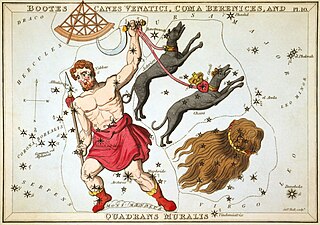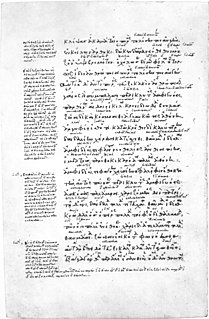 W
WHesiod was an ancient Greek poet generally thought to have been active between 750 and 650 BC, around the same time as Homer. He is generally regarded as the first written poet in the Western tradition to regard himself as an individual persona with an active role to play in his subject. Ancient authors credited Hesiod and Homer with establishing Greek religious customs. Modern scholars refer to him as a major source on Greek mythology, farming techniques, early economic thought, archaic Greek astronomy and ancient time-keeping.
 W
WThe Aegimius is a fragmentary Ancient Greek epic poem that was variously attributed to Hesiod or Cercops of Miletus during antiquity. The "Aegimius" of the title was surely the son of Dorus, but the surviving fragments have nothing to do directly with this figure, and, despite his status as title character, it cannot be inferred from the available evidence that the poem was primarily concerned with the Dorian king. Instead other myths, such as those concerning Io, Theseus, and the golden fleece, are found among the handful of fragments preserved in other ancient authors as quotations and paraphrases.
 W
WThe Astronomia or Astrologia is a fragmentary Ancient Greek hexameter poem that was attributed to Hesiod during antiquity. As the title of the poem suggests, it was astronomical in focus, dealing with the stars. It has been suspected that the Astronomia influenced the style of Aratus' Phaenomena, but the remains of the Hesiodic poem found in ancient quotations are too meager to allow for certainty on this matter.
 W
WThe Catalogue of Women — also known as the Ehoiai — is a fragmentary Greek epic poem that was attributed to Hesiod during antiquity. The "women" of the title were in fact heroines, many of whom lay with gods, bearing the heroes of Greek mythology to both divine and mortal paramours. In contrast with the focus upon narrative in the Homeric Iliad and Odyssey, the Catalogue was structured around a vast system of genealogies stemming from these unions and, in M. L. West's appraisal, covered "the whole of the heroic age." Through the course of the poem's five books, these family trees were embellished with stories involving many of their members, and so the poem amounted to a compendium of heroic mythology in much the same way that the Hesiodic Theogony presents a systematic account of the Greek pantheon built upon divine genealogies.
 W
WThe Precepts of Chiron is a now fragmentary Greek didactic poem that was attributed to Hesiod during antiquity. The poem was presented in the voice of Chiron, the wise centaur, as he instructed a young Achilles. To judge from the few fragments that are preserved in other ancient authors, the hero's lessons consisted of moral, religious and practical advice. As such, the poem shows affinities not only with the Hesiodic Works and Days, with which it shared its hexameter verse form, but also with the gnomic elegies of Theognis.
 W
WThe Shield of Heracles is an archaic Greek epic poem that was attributed to Hesiod during antiquity. The subject of the poem is the expedition of Heracles and Iolaus against Cycnus, the son of Ares, who challenged Heracles to combat as Heracles was passing through Thessaly.
 W
WThe Theogony is a poem by Hesiod describing the origins and genealogies of the Greek gods, composed c. 700 BC. It is written in the Epic dialect of Ancient Greek.
 W
WThe Works and Days is a didactic poem written by the ancient Greek poet Hesiod around 700 BC. It is in dactylic hexameter and contains 828 lines. At its center, the Works and Days is a farmer's almanac in which Hesiod instructs his brother Perses in the agricultural arts.